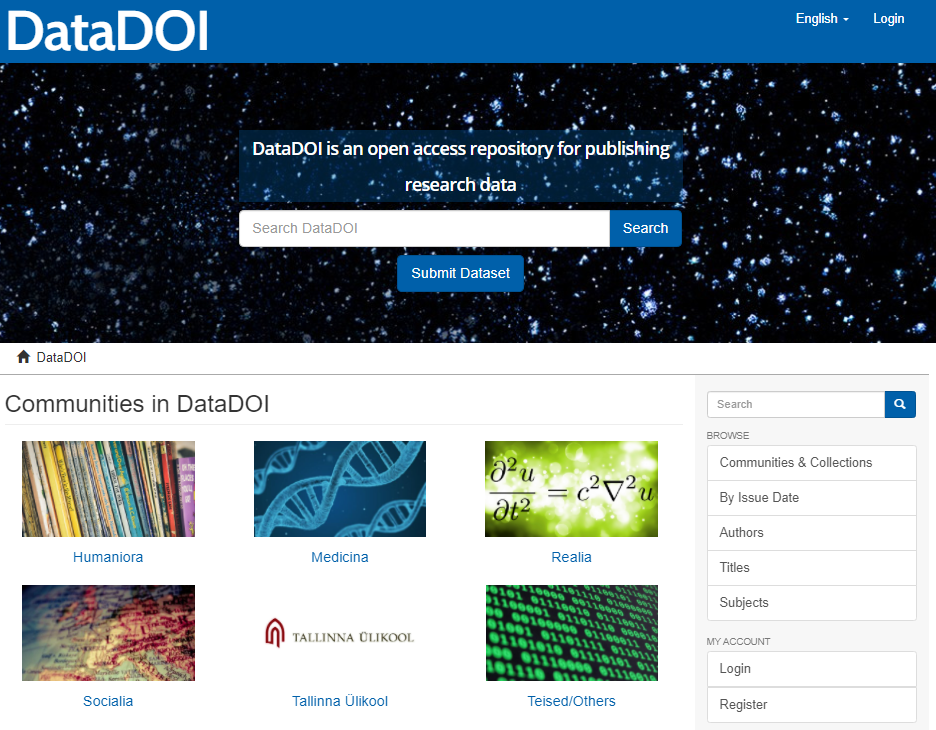Data Search
Data Repositories
Research data repositories are digital archives that preserve, manage, and provide access to many types of digital materials in a variety of formats. Repositories ensure findability and accessability of research data and their metadata. Repositories provide a persistent identifier to the dataset, which enables to find, identify, link and cite datasets.
There are several types of data repositories:
- institutional: UT DataDOI, Edinburgh DataShare, Harvard Dataverse
- national: UK Data Service, ANDS
- subject-specific: DRYAD , PANGAEA, BioSharing, TROLLing, DataONE, ICPSR
- multidistciplinary: Figshare, ZENODO
- project-based: Scientific Drilling Database
Institutional repositories usually provide a data storage service to researchers of their own university. These are universal repositories capable of storing the most common data types and formats, such as text, tables, audio and video etc.
The University of Tartu research data repository DataDOI is managed by the university library; Tallinn University has also joined the repository. You can search for data by the subject field or metadata. Every UT researcher can upload their data to it; the data is immediately given a persistent identifier DOI, making it possible to link the data and articles.

Subject-specific or disciplinary repositories are able to store very specific data based on the data and metadata standards and expected data volumes. Examples include genetic data, space exploration data, satellite data and big data in general.
Researchers mostly prefer to upload their data to disciplinary repositories, if they exist, because these are familiar to their scientific community. Thus, not all data collected at the University of Tartu is in the UT data repository.
There are also some subject repositories in Estonia, such as the data management platform PlutoF for biodiversity data, the geoscience collections database SARV and a smart repository QsarDB for (Q)SAR/QSPR models and datasets. In most cases, smaller subject-specific repositories are integrated with larger networks, so the Center of Estonian Language Resources (CERL) is part of the CLARIN-ERIC repository network.
Universal multidisciplinary repositories are very well known, as all researchers can upload their data and, therefore, thousands of datasets are available. The European Commission funded the establishment of the Zenodo repository, which publishes data of EC projects (Horizon 2020).
If you want to learn more about universal repositories, explore the General Repository Comparison.
Services provided by data repositories
The main task of a data repository is to curate the data provided for long-term storage in the way that the data is findable, accessible, interoperable and reusable (FAIR data).
Repositories also manage access rights and embargo periods, if required by the researcher.
Large repositories often provide software for processing common formats. However, after downloading, the data is generally still processed on some other platform.
Repositories can also provide bibliometric data, statistics on database downloads and visualizations, as well as citation formatting.
Repositories also assist the researcher in selecting appropriate licenses for their work.

